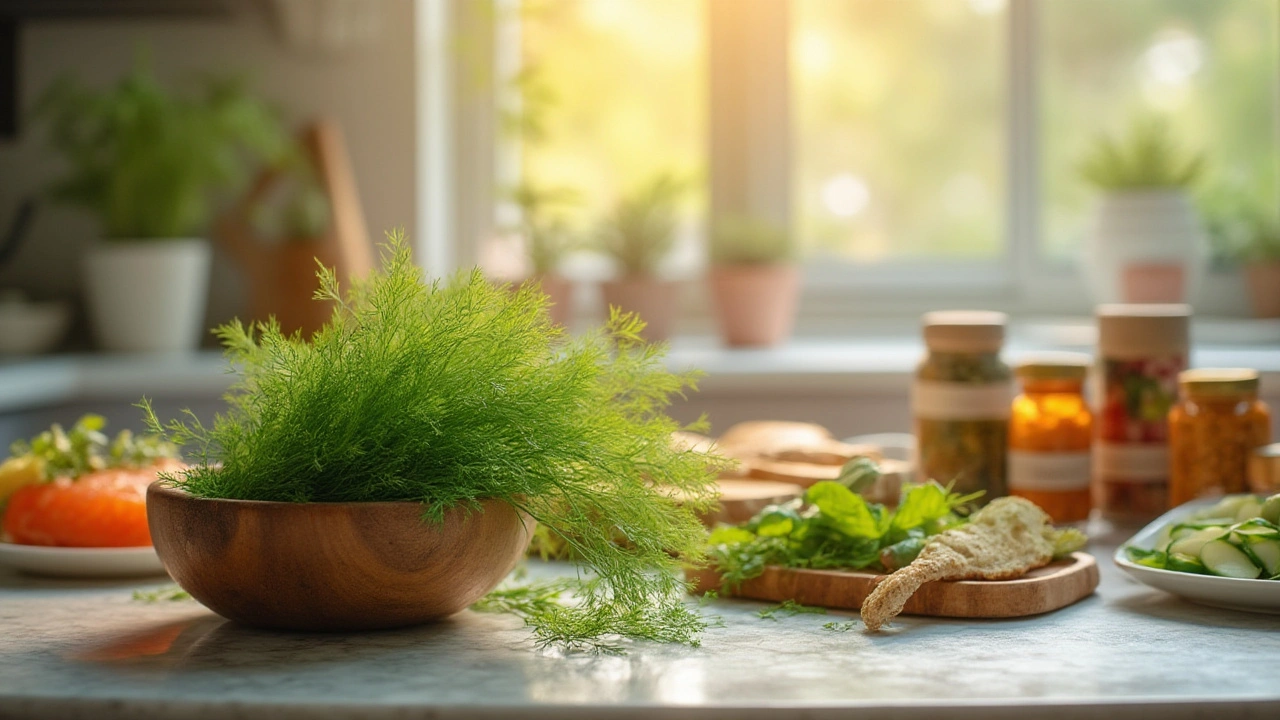Dill – What It Is and Why It Matters
Ever wonder why dill shows up on so many food labels and supplement bottles? It’s a leafy herb with a light, fresh taste and a surprisingly wide range of health perks. In this guide we’ll break down what dill does for your body, how to add it to meals, and what to watch out for if you take it as a supplement.
Health Benefits of Dill
Dill isn’t just a flavor booster. The plant is packed with antioxidants like flavonoids and vitamin C, which help protect cells from damage. Those antioxidants can support a healthy immune system and may lower inflammation. If you’re dealing with digestion issues, dill’s natural oils can help relax the gut muscle, easing bloating and cramping.
Another handy perk is dill’s potential to support heart health. Some studies suggest that the potassium and fiber in dill can help regulate blood pressure and cholesterol levels. While the research isn’t huge, adding dill to a balanced diet is an easy, low‑calorie way to get those nutrients without extra effort.
People also use dill seed oil for its antimicrobial properties. It can act against certain bacteria and fungi, which is why you sometimes see dill in natural toothpaste or mouthwash. If you’re prone to oral infections, a dab of diluted dill oil might be worth a try—but always check with a dentist first.
How to Use Dill Safely
Fresh dill leaves are best for cooking. Toss them into salads, sprinkle on baked fish, or stir into yogurt for a quick dip. The flavor fades quickly when heated, so add it at the end of cooking to keep the taste bright.
If you prefer dried dill, use about one‑third of the fresh amount because the flavor is concentrated. Store dried dill in a sealed jar away from light to keep it fresh for months.
For supplement seekers, dill seed oil capsules are the most common form. A typical dose is 500 mg once or twice a day, but you should follow the label or a healthcare provider’s advice. People with bleeding disorders or those on blood‑thinning medication should be cautious—dill can have mild anticoagulant effects.
Allergies to dill are rare but possible, especially if you’re also allergic to other Apiaceae family plants like celery or carrots. If you notice itching, swelling, or stomach upset after eating dill, stop using it and talk to a doctor.
Pregnant or nursing women don’t need to avoid dill entirely. Small culinary amounts are considered safe, but high‑dose supplements should be discussed with a healthcare professional to avoid any unknown risks.
In short, dill is a versatile herb that can boost flavor and add a host of health benefits when used wisely. Keep a bunch in your fridge, experiment with it in simple recipes, and consider a low‑dose supplement only if you have a clear reason. Your taste buds and your body will thank you.
Dill Supplement Benefits: Natural Health Booster and Simple Wellness Secret
Curious about dill? Discover how this humble herb works as a dietary supplement, supporting digestion, heart health, immunity, and more—without any fuss or fillers.
